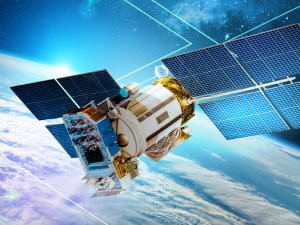Analog Devices and MDA Collaborate to Provide Electronic Beam Forming Technology for the Telesat Lightspeed Constellation

Analog Devices, Inc. announced a collaboration with MDA to deliver the beam forming integrated circuit (BFIC) to be used in MDA’s sophisticated phased array antenna for the Telesat Lightspeed low earth orbit (LEO) satellite constellation. Telesat Lightspeed, initially comprised of 298 next-generation satellites, is planned to launch in the second half of 2023 and will redefine global broadband connectivity for commercial, government, and defense markets.
LEO satellites, rather than operating from a fixed position, move across the sky and must dynamically steer communication beams to maintain uninterrupted and high-speed connectivity to ground terminals. The new BFIC solution is highly reliable while performing under extreme temperatures and cosmic radiation for the full 10- to 12-year lifespan of each satellite.
“Electronically steered array technology is a necessity for the builders and operators of the next generation of LEO constellations. This technology provides MDA and Telesat with the ability to simultaneously steer multiple beams and allows beams to be rapidly repositioned at speeds that are not possible with mechanical systems,” said Bryan Goldstein, Vice President of Aerospace and Defense at Analog Devices. “We are excited to collaborate with MDA to support the Telesat Lightspeed constellation.”
“The collaboration with ADI has enabled MDA to develop the critical solutions required to perform electronic beam steering on the Telesat Lightspeed antennas,” said Amer Khouri, Vice President of Satellite Systems, MDA. “We look forward to continuing this journey together and producing the large quantity of antennas required for this groundbreaking program.”
Original Press Release.




